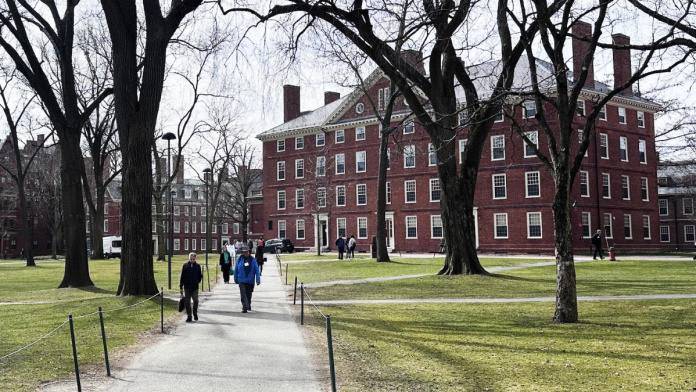U.S. District Judge Allison D. Burroughs has ordered the Trump administration to restore nearly $2.2 billion in federal grants that were frozen earlier this year. The funding, which supports critical research at Harvard, had been halted after the administration claimed the university failed to act on antisemitism.
In her 84-page ruling, Judge Burroughs said there was little evidence connecting the freeze to actual cases of antisemitism. Instead, she concluded that officials used antisemitism as a “smokescreen” for a broader political attack on universities. She said the move violated the Administrative Procedure Act, the First Amendment, and Title VI of the Civil Rights Act.
The freeze had forced dozens of scientific and medical projects to stop work, even in fields like medicine and technology that have no relation to campus culture debates. With the ruling, those projects can now restart, bringing relief to researchers, students, and staff who depend on federal support to continue their work.
Why the Funding Was Frozen
The conflict began in April when the Trump administration sent Harvard a letter outlining ten conditions it needed to meet to keep its federal funding. Among the demands were restricting admissions of international students considered “hostile to American values,” closing all diversity, equity, and inclusion programs, and bringing in third-party auditors to examine departments. Only one of the ten conditions mentioned antisemitism directly.
Trump’s global tariffs struck down by federal court for exceeding emergency powers
When Harvard refused to accept the terms, federal agencies sent grant termination letters in May. These letters halted funding for ongoing projects but did not cite any specific cases of antisemitism on campus. Judge Burroughs highlighted that none of the letters explained how Harvard’s actions violated Title VI or how freezing grants would improve conditions for Jewish students.
She also pointed out that the administration did not conduct any meaningful review of antisemitism at Harvard before making its decision. Without such review, she wrote, it was “difficult to conclude anything other than that the actions were retaliatory and ideologically driven.”
The judge noted the consequences of these actions were severe. “Work has been ordered to stop on a vast number of research projects across fields that are critical both nationally and worldwide,” she wrote. “There is no obvious link between the affected projects and antisemitism.”
Harvard and Government Reactions
Harvard President Alan Garber welcomed the ruling, saying it affirms the university’s academic freedom and procedural rights. He said the decision supports the school’s mission to advance education and discovery while also addressing issues of discrimination on campus. “We will continue to champion open inquiry and the free exchange of ideas, and to build a community in which all can thrive,” Garber said.
Federal court sentences 6 in forced labor case involving child victims and cult group
The government, however, responded with sharp criticism. White House spokesperson Liz Huston said Harvard had failed to protect its students from harassment and argued that it should remain ineligible for future grants. “Harvard does not have a constitutional right to taxpayer dollars,” Huston said in a statement.
The Education Department echoed that stance. Spokesperson Madi Biedermann described the ruling as unsurprising and noted that Judge Burroughs had previously ruled in Harvard’s favor in a high-profile admissions case later overturned by the Supreme Court. She said efforts to “clean up” universities would continue despite the setback.
Judge Burroughs’s ruling makes clear that federal agencies cannot freeze or cancel grants as punishment for speech or ideological disagreements. She also blocked the administration from issuing future freezes or stop-work orders without following proper legal procedures under Title VI.
The decision applies specifically to Harvard, but it underscores the growing clash between universities and the federal government over issues of free speech, academic independence, and the limits of federal authority in education.


